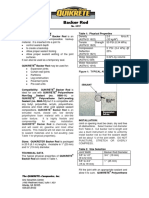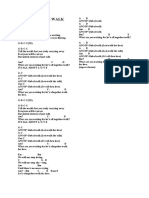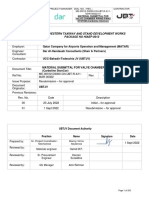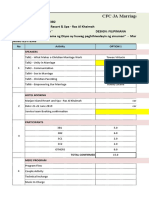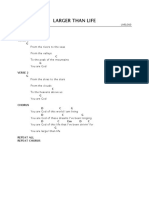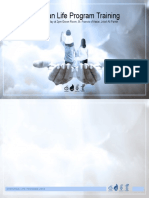0 ratings0% found this document useful (0 votes)
14 viewsPastoral Letter Fiducia Supplicans en 12 21 23
Pastoral Letter Fiducia Supplicans en 12 21 23
Uploaded by
Cassy AbulenciaCopyright:
© All Rights Reserved
Available Formats
Download as PDF or read online from Scribd
Pastoral Letter Fiducia Supplicans en 12 21 23
Pastoral Letter Fiducia Supplicans en 12 21 23
Uploaded by
Cassy Abulencia0 ratings0% found this document useful (0 votes)
14 views3 pagesOriginal Title
pastoral-letter-fiducia-supplicans-en-12-21-23
Copyright
© © All Rights Reserved
Available Formats
PDF or read online from Scribd
Share this document
Did you find this document useful?
Is this content inappropriate?
Copyright:
© All Rights Reserved
Available Formats
Download as PDF or read online from Scribd
Download as pdf
0 ratings0% found this document useful (0 votes)
14 views3 pagesPastoral Letter Fiducia Supplicans en 12 21 23
Pastoral Letter Fiducia Supplicans en 12 21 23
Uploaded by
Cassy AbulenciaCopyright:
© All Rights Reserved
Available Formats
Download as PDF or read online from Scribd
Download as pdf
You are on page 1of 3
DIOCESE OF FORT WORTH
Pastoral Letter
To All Priests, Deacons, Seminarians, Religious Men and Women, and Faithful Laity
of the Diocese of Fort Worth
December 21, 2023
Optional Memorial of Saint Peter Canisius
Dear Friends in Christ,
On December 18, 2023, the Dicastery for the Doctrine of the Faith issued a Declaration with the
title Fiducia Supplicans, on “The Pastoral Meaning of Blessings.” One controversial part of the
document has to do with the possibility of blessing people who are in “irregular” or “same sex”
unions.
Catholics, and people generally, confused by the mainstream media as well as by sexual
ideologues outside and within the Church and Catholic media, are asking whether this
declaration has changed the Church’s teaching about marriage and sexual morality. In plain
words, “Is it possible now to bless sin?” I urge you to read the entirety of the document to
avoid the distortions fomented by the media.
Even though the document permits what was already permitted, because of the timing and
context of its release, the meaning of the text has been exploited by revisionists of the
authentic teaching of the Gospel handed down through the Apostles and their successors to
the Church to promote what is morally impermissible: the sanctioning of objectively grave
sin, disordered sexual acts, and the perversion of marriage and family life. It would be
unconscionable for me as your bishop not to exercise my teaching office and offer the
clarity of the Gospel to address this confusion over a matter so essential for the salvation of
souls.
Fiducia Supplicans Does Not Change the Church's Teaching on Marriage
No authority, civil or ecelesial, can alter the divine revelation (through natural law and positive
revelation) the teaching of Jesus Christ Himself that informs the Church’s understanding of
marriage and her witness to perennial truths about one of the essential pillars of civilization. In
his responses to dubia posed by two Cardinals, dated July 11, 2023, the Holy Father identified
the need to avoid recognizing anything as marriage that is not marriage. “Therefore,” the new
declaration says, “rites and prayers that could create confusion between what constitutes
marriage—which is the “exclusive, stable, and indissoluble union between a man and a woman,
naturally open to the generation of children’ [6]—and what contradicts it are inadmissible.”
THE CATHOLIC CENTER
2. The Purpose of the New Declaration
‘What, then, has changed if anything? The document says that it “offers a specific and
innovative contribution to the pastoral meaning of blessings, permitting a broadening and
enrichment of the classical understanding of blessings, which is closely linked to a liturgical
perspective, Such theological reflection, based on the pastoral vision of Pope Francis,
implies a real development from what has been said about blessings in the Magisterium and
the official texts of the Church.” The document expands the theology of blessing to make a
distinction between blessings invoked liturgically within a rite and ceremony and blessings
that are offered spontaneously and outside of a liturgy and ceremony.
The document states, that “it is essential to grasp the Holy Father’s concer that these non-
ritualized blessings never cease being simple gestures that provide an effective means of
increasing trust in God on the part of the people who ask for them, careful that they should not
become a liturgical or semi-liturgical act, similar 10 a sacrament.” Again, “for this reason, one
should neither provide for nor promote a ritual for the blessings of couples in an irregular
situation.” (Emphases added.)
So, what does the blessing of an “irregular” or “same sex” couple actually look like? The
declaration itself says, “In a brief prayer preceding this spontaneous blessing, the ordained
minister could ask that che individuals have peace, health, a spirit of patience, dialogue, and
mutual assistance—but also God’s light and strength to be able to fulfill his will
completely.” God’s will can never include objectively grave sin inherently contradictory of
the Gospel and His design of the created order.
3. The Blessing Does Not Offer Legitimization
This leads to an important matter of concer. The declaration says, “[T]here is no intention to
legitimize anything, but rather to open one’s life to God, to ask for his help to live better, and
also to invoke the Holy Spirit so that the values of the Gospel may be lived with greater
faithfulness.”
To repeat a text from the introduction, itis in this context, the document says that “one can
understand the possibility of blessing couples in irregular situations and same-sex couples
without officially validating their status or changing in any way the Church's perennial teaching
‘on marriage.” (Emphasis added.)
‘The spontaneous blessing given to such people “involves the invocation of a blessing that
descends from God upon those who—recognizing themselves to be destitute and in need of his,
help—do not claim a legitimation of their own status, but who beg that all that is true, good, and
humanly valid in their lives and their relationships be enriched, healed, and elevated by the
presence of the Holy Spirit.” (Presumably, then, a couple who openly ask for a blessing as a sign
of legitimization of their irregular status could not be blessed.) If a priest or deacon is morally
certain that such a couple is seeking public legitimation for their irregular status, the priest or
deacon must refuse to offer such a blessing. This includes not only same-sex couples, but also
cohabitating couples outside of marriage, couples openly and publicly known to be divorced and
re-married civilly.
Itis important to remember that a blessing is a prayer that something be used for God’s service,
such as an object, a home, a talent, or marriage vows. A sin cannot be used in God’s service and
therefore cannot be blessed. In the end, however, blessings are often requested by each of us
when we are troubled and seek God’s help in pursuing authentic life in the Gospel. In that
context, with good faith and with proper intentions all around, the blessings of God should be
generously given faithfully and not be withheld from His people, all of us sinners and in need of
the grace of conversion.
4, Conclusion and Request for Prayers
In summation, Fiducia Supplicans exhorts each of us to rely on God’s mercy and not to impose
our own ideologies fraught with passion as demands upon God to endorse and to discharge. The
document teaches that the Chureh’s teaching on marriage, designed in God's order of creation
and taught by Christ Himself, has not changed and cannot change. The docume:t further teaches
that persons in irregular unions or “same sex” couples can receive a blessing as individuals, if the
blessing is spontaneously requested and administered, if it is done apart from any kind of
ceremony of liturgy, if itis clearly sought and understood as not endorsing or blessing
objectively grave sin, if it does not allude to any union between the individuals that would
suggest marriage, if it offers petition for growth in Christian virtue and if it does not use the
liturgical prayers and rites of the Church (e.g. the Book of Blessings, the Rite of Marriage).
Let us pray for Pope Francis who exhorts all of us to rely ever more deeply on God's truth and
merey. Please pray for me as your bishop entrusted unworthily with this apostolic ministry.
Please pray for your priests and deacons called to serve. Pray for all people in irregular
situations, that they may come to understand the truth, and live the truth with integrity and peace.
During the upcoming Christmas season, when the dignity of human flesh is restored from the
corruption of sin through the Incarnation and birth of Jesus Christ, true God and true man, when
the sanctity and necessity of marriage and family life is revealed in the loving and pure example
of the Holy Family of Jesus, Mary, and Joseph, and when the summons of the Savior is made as
clear to us as it was to the Magi, we must all pray and ask for prayers for ourselves, for those
who deliberately mislead, and for those who are misled through ideological manipulation of this
document despite its claims to the contrary.
May the Divine Infant Jesus bless each of us with unity and harmony through the gift of the
Peace that only He ean offer. I remain,
Sincerely yours in Christ,
+ Whihal Lhow
Most Reverend Michael F. Olson, STD, MA.
Bishop of Fort Worth
You might also like
- The Subtle Art of Not Giving a F*ck: A Counterintuitive Approach to Living a Good LifeFrom EverandThe Subtle Art of Not Giving a F*ck: A Counterintuitive Approach to Living a Good LifeRating: 4 out of 5 stars4/5 (5984)
- The Gifts of Imperfection: Let Go of Who You Think You're Supposed to Be and Embrace Who You AreFrom EverandThe Gifts of Imperfection: Let Go of Who You Think You're Supposed to Be and Embrace Who You AreRating: 4 out of 5 stars4/5 (1112)
- Never Split the Difference: Negotiating As If Your Life Depended On ItFrom EverandNever Split the Difference: Negotiating As If Your Life Depended On ItRating: 4.5 out of 5 stars4.5/5 (898)
- Hidden Figures: The American Dream and the Untold Story of the Black Women Mathematicians Who Helped Win the Space RaceFrom EverandHidden Figures: The American Dream and the Untold Story of the Black Women Mathematicians Who Helped Win the Space RaceRating: 4 out of 5 stars4/5 (932)
- Grit: The Power of Passion and PerseveranceFrom EverandGrit: The Power of Passion and PerseveranceRating: 4 out of 5 stars4/5 (619)
- Shoe Dog: A Memoir by the Creator of NikeFrom EverandShoe Dog: A Memoir by the Creator of NikeRating: 4.5 out of 5 stars4.5/5 (546)
- The Hard Thing About Hard Things: Building a Business When There Are No Easy AnswersFrom EverandThe Hard Thing About Hard Things: Building a Business When There Are No Easy AnswersRating: 4.5 out of 5 stars4.5/5 (357)
- Her Body and Other Parties: StoriesFrom EverandHer Body and Other Parties: StoriesRating: 4 out of 5 stars4/5 (831)
- Elon Musk: Tesla, SpaceX, and the Quest for a Fantastic FutureFrom EverandElon Musk: Tesla, SpaceX, and the Quest for a Fantastic FutureRating: 4.5 out of 5 stars4.5/5 (477)
- The Emperor of All Maladies: A Biography of CancerFrom EverandThe Emperor of All Maladies: A Biography of CancerRating: 4.5 out of 5 stars4.5/5 (275)
- The Little Book of Hygge: Danish Secrets to Happy LivingFrom EverandThe Little Book of Hygge: Danish Secrets to Happy LivingRating: 3.5 out of 5 stars3.5/5 (425)
- The World Is Flat 3.0: A Brief History of the Twenty-first CenturyFrom EverandThe World Is Flat 3.0: A Brief History of the Twenty-first CenturyRating: 3.5 out of 5 stars3.5/5 (2272)
- The Yellow House: A Memoir (2019 National Book Award Winner)From EverandThe Yellow House: A Memoir (2019 National Book Award Winner)Rating: 4 out of 5 stars4/5 (99)
- The Sympathizer: A Novel (Pulitzer Prize for Fiction)From EverandThe Sympathizer: A Novel (Pulitzer Prize for Fiction)Rating: 4.5 out of 5 stars4.5/5 (125)
- Devil in the Grove: Thurgood Marshall, the Groveland Boys, and the Dawn of a New AmericaFrom EverandDevil in the Grove: Thurgood Marshall, the Groveland Boys, and the Dawn of a New AmericaRating: 4.5 out of 5 stars4.5/5 (270)
- Team of Rivals: The Political Genius of Abraham LincolnFrom EverandTeam of Rivals: The Political Genius of Abraham LincolnRating: 4.5 out of 5 stars4.5/5 (235)
- A Heartbreaking Work Of Staggering Genius: A Memoir Based on a True StoryFrom EverandA Heartbreaking Work Of Staggering Genius: A Memoir Based on a True StoryRating: 3.5 out of 5 stars3.5/5 (232)
- On Fire: The (Burning) Case for a Green New DealFrom EverandOn Fire: The (Burning) Case for a Green New DealRating: 4 out of 5 stars4/5 (75)
- The Unwinding: An Inner History of the New AmericaFrom EverandThe Unwinding: An Inner History of the New AmericaRating: 4 out of 5 stars4/5 (45)
- S 190DCCHWSD 0004 00Document1 pageS 190DCCHWSD 0004 00Cassy AbulenciaNo ratings yet
- Data Sheet-BackerrodDocument2 pagesData Sheet-BackerrodCassy AbulenciaNo ratings yet
- Backer RodDocument2 pagesBacker RodCassy AbulenciaNo ratings yet
- INFR-CIVIL SPE-Process (Cover Page)Document3 pagesINFR-CIVIL SPE-Process (Cover Page)Cassy AbulenciaNo ratings yet
- O & M-GDL-002 - Rev 1Document8 pagesO & M-GDL-002 - Rev 1Cassy AbulenciaNo ratings yet
- Tender Design: Chilled Water Pipes NetworkDocument1 pageTender Design: Chilled Water Pipes NetworkCassy AbulenciaNo ratings yet
- Iiped PortfolioDocument17 pagesIiped PortfolioCassy AbulenciaNo ratings yet
- Iiped 16 BN-01 E16161Document8 pagesIiped 16 BN-01 E16161Cassy AbulenciaNo ratings yet
- Iiped BrochureDocument6 pagesIiped BrochureCassy AbulenciaNo ratings yet
- ME-00065-A7110-CN-MCC-P-00-MAR-00001-00 - Pipe Fittings-OkDocument151 pagesME-00065-A7110-CN-MCC-P-00-MAR-00001-00 - Pipe Fittings-OkCassy AbulenciaNo ratings yet
- 0 SignedDocument18 pages0 SignedCassy AbulenciaNo ratings yet
- Ancop Global Walk 2020 ThemeDocument1 pageAncop Global Walk 2020 ThemeCassy AbulenciaNo ratings yet
- Cover - MAR-0022-R1 - Valve Chamber Piping Painting-SignedDocument1 pageCover - MAR-0022-R1 - Valve Chamber Piping Painting-SignedCassy AbulenciaNo ratings yet
- July Youth Camp 2022Document15 pagesJuly Youth Camp 2022Cassy AbulenciaNo ratings yet
- Sample DrawingDocument1 pageSample DrawingCassy AbulenciaNo ratings yet
- MER2-June2019Document17 pagesMER2-June2019Cassy AbulenciaNo ratings yet
- Song Sheet - Larger - Than - LifeDocument2 pagesSong Sheet - Larger - Than - LifeCassy AbulenciaNo ratings yet
- Guidelines For MER 2 Participants June21Document3 pagesGuidelines For MER 2 Participants June21Cassy AbulenciaNo ratings yet
- Song Sheet - Live - For - YouDocument2 pagesSong Sheet - Live - For - YouCassy AbulenciaNo ratings yet
- CLP-Powerpoint PresentationDocument2 pagesCLP-Powerpoint PresentationCassy AbulenciaNo ratings yet
- Song Sheet - KingDocument2 pagesSong Sheet - KingCassy AbulenciaNo ratings yet









































